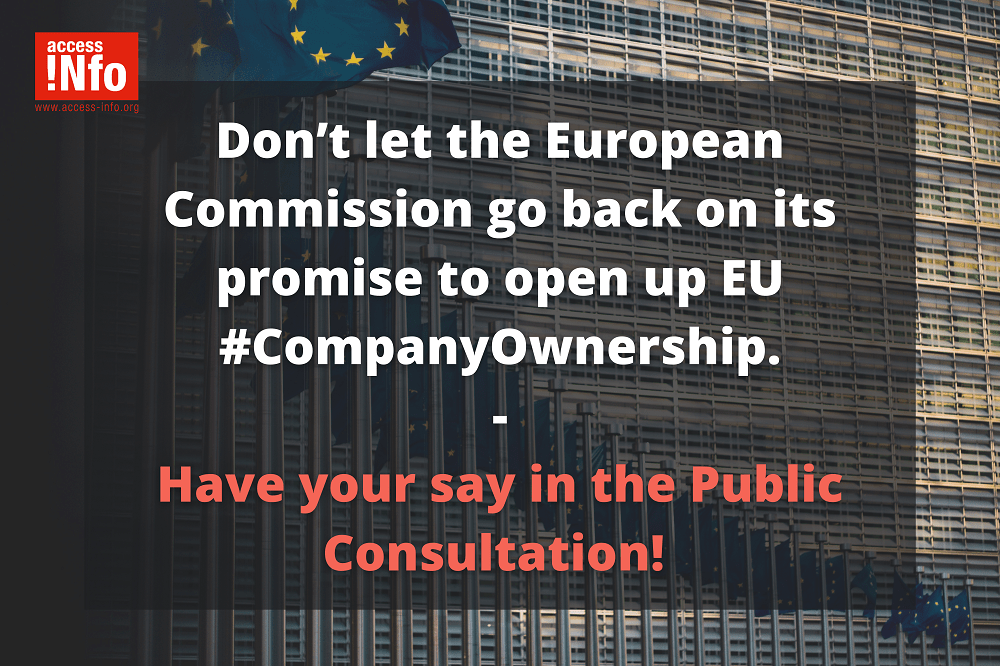Madrid, 1 June 2022 – Under the EU’s Open Data Directive, company registration and ownership information should be available as open data. In a surprise move, the European Commission is now proposing, via a long-overdue Implementing Regulation, that the names of the owners of companies will not be made available for free.
As a result, SMEs, businesses, academia, journalists and CSOs will not get access to information that is vital in due diligence, innovation and preventing corruption, money laundering and terrorist financing.
Join leading transparency and open data activists in a public briefing to discuss next steps and how to best respond to the public consultation.
When: Tuesday 7 June, 16.30 – 17.30 CEST
Where: Zoom, register here
Civil society has been advocating for years for transparency of company ownership in the EU. It was therefore very positive to see that “Company and Company Ownership” was considered a high-value data set under the 2019 Open Data Directive, meaning that the EU was requiring that company registers in all Member States be made public as open data, free of charge.
It is now of great concern that, following long delays, the European Commission has published a proposed Implementing Regulation, which significantly limits which data about company owners will be made public, in effect undermining the transparency commitment made by the EU Member States and European Parliament.
Of particular concern, is that the proposed Implementing Regulation calls for a bare minimum of company data and documents to be published but excludes the names of company owners.
If this Implementing Regulation is adopted as is, the Member States which currently charge for access to their company registers will not have to make the names of company owners available for free. Interestingly, those who can afford to pay – with prices ranging up to €15 per record – are able to access this data. This demonstrates that the problem is not one of personal data protection but rather more of limiting public scrutiny.
Publishing company ownership data without names of company owners would render this dataset ineffective: CSOs and journalists would not have access to the data they need to properly investigate corrupt companies, and SMEs and entrepreneurs would not be able to carry out proper due diligence on potential partners.
Next Steps: Consultation & Action!
The Commission has opened a public consultation on this Implementing Regulation, and the public have until 21 June 2022 to give feedback. To offer guidance on how to give feedback, a group of leading transparency and open data activists will be holding a public briefing to discuss how best to respond to this consultation to call on the Commission to truly make EU company ownership transparent.

